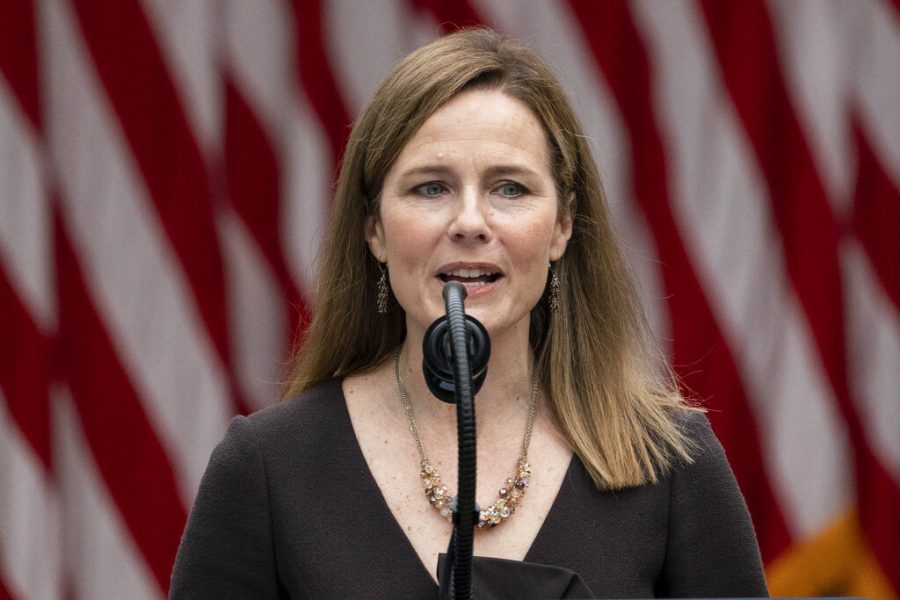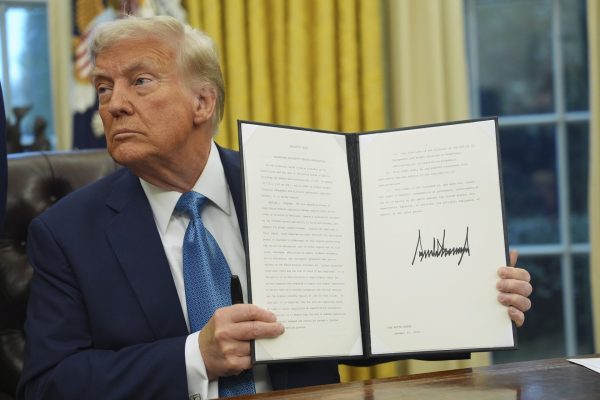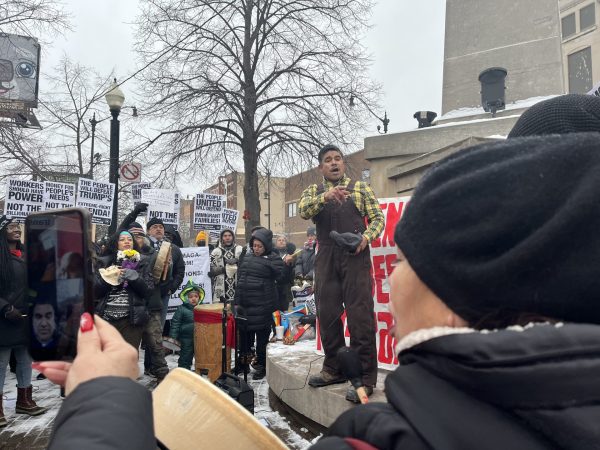Trump taps Chicago-based Amy Coney Barrett for Supreme Court
AP for The DePaulia
Judge Amy Coney Barrett speaks after President Donald Trump announced her as his nominee to the Supreme Court, in the Rose Garden at the White House, Saturday, Sept. 26, 2020, in Washington. (AP Photo/Alex Brandon)
President Donald Trump announced on Saturday that he is nominating Judge Amy Coney Barrett to replace Justice Ruth Bader Ginsburg on the Supreme Court.
Barrett, 48, graduated with honors from Rhodes College, a Presbyterian-affiliated school in Tennessee. She continued on to Notre Dame Law School in Indiana. From 1998 to 1999, Barrett served as a law clerk to Justice Antonin Scalia, the conservative giant of jurisprudence.
In her time as Scalia’s law clerk, she was nicknamed the “Conenator” by her colleagues because of her ability to tear apart flimsy legal arguments. Though she shares a similar conservative ideology as Scalia, she is not often brought to liberal results as Scalia was. Brian T. Fitzpatrick, former law clerk to Scalia and a law professor at Vanderbilt University, said that this is unlikely for Barrett.
“She is sympathetic to Justice Scalia’s methods, but I don’t get the sense that she is going to be a philosophical leader on how those methods should be executed,” Fitzpatrick said.
Following her time as a law clerk, Barrett briefly practiced law and taught for 15 years at Notre Dame Law School. Barrett was nominated by Trump to the Seventh U.S. Circuit Court of Appeals in May 2017 and was confirmed by the Senate that October in a 55-43 vote.
When Trump selected Brett Kavanaugh for the Supreme Court in 2018, Barrett had been a finalist. At the time, she had been on the appellate bench for less than a year after 15 years of teaching law. The White House decided against nominating Barrett at the time because of her lack of experience and out of fear that her nomination would trigger a fight about abortion rights in a divided Senate, the Wall Street Journal reported.
Barrett’s voting record reflects a conservative-leaning mindset in cases on abortion, gun rights, discrimination and immigration. The Associated Press reported that her judicial record includes 100 opinions and several telling dissents in which Barrett displayed “her clear and consistent conservative bent.”
A devout Catholic, Barrett has been questioned on her ability to separate her religious beliefs and her case rulings. In Barrett’s 2017 confirmation hearings for the Seventh U.S. Circuit Court of Appeals, Sen. Dianne Feinstein of California questioned her ability to separate the two.
“The conclusion one draws is that the dogma lives loudly within you,” Feinstein said.
Barrett has insisted that her religious beliefs would not have any bearing on her rulings as a federal judge.
If Barrett is to be appointed to the Supreme Court by Election Day, one of the earliest cases she could hear would be on the latest Obamacare challenge, which the court is scheduled to hear on Nov. 10.












